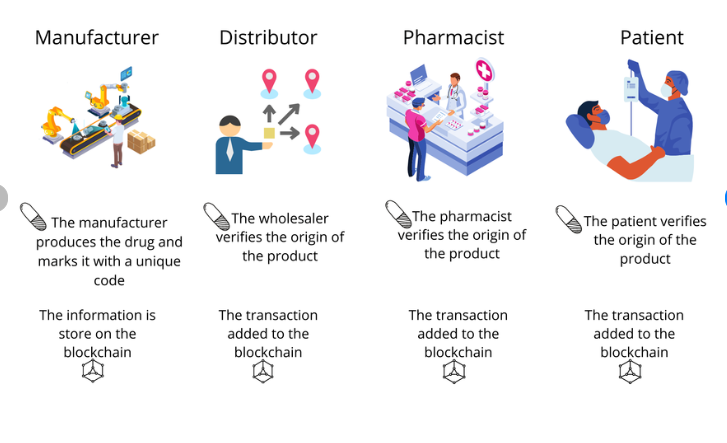Smart Contract Automation
Smart Contracts in Pharmaceutical Supply Chain
Traditional pharmaceutical supply chains face challenges such as counterfeit medicines, lack of transparency, poor traceability, and weak temperature monitoring during transportation. These issues not only lead to financial losses but also endanger patient safety.
A smart contract is a self-executing program stored on a blockchain that automatically enforces predefined rules when conditions are met. In the pharmaceutical supply chain, smart contracts can be used to ensure that every transaction from manufacturing to distribution, pharmacy stocking, and patient delivery is securely recorded, tamper-proof, and transparent to all participants.

By recording each step of the medicine’s journey on the blockchain ledger:
- Authenticity: Every batch of medicine is registered by the manufacturer, making it difficult for counterfeit drugs to enter the supply chain.
- Traceability: Medicines can be tracked at every stage (manufacturer → distributor → pharmacy → patient), ensuring visibility and accountability.
- Security: Each transaction is immutable and time-stamped, preventing unauthorized alterations.
- Temperature Control: Smart contracts can integrate IoT data to verify that medicines are stored and transported within safe temperature ranges.
- Efficiency: Automating stock management and sales through smart contracts reduces manual errors and speeds up decision-making.
This experiment demonstrates a use case of blockchain-based smart contracts for a Secure and Transparent Pharmaceutical Supply Chain. By simulating the journey of medicines from manufacturer to patient, the role of smart contracts in preventing counterfeiting, ensuring authenticity, and enhancing trust in healthcare can be clearly observed.
